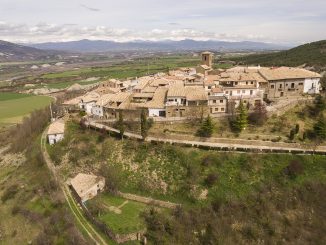Press release by French NGOs: Agir pour l’Environnement, Friends of the Earth, EFNCP, FNAB, FNCIVAM, FNH, LPO, MRJC, 4D, RAC, Solidarité, WWF.
Paris, January 23rd 2012
On January 17, in the Ariege Pyrenean department, President Sarkozy expressed good wishes to the “rural world stakeholders”. The signatories of this communication believe that his vision of the Common Agricultural Policy (CAP) is outdated. Mr Sarkozy’s call to change the agricultural model does not make sense if France has not yet decided to support a real reform of the CAP, which could back more sustainable farming and food systems that are less reliant on aid.
Local food systems: good initiatives but so far from the CAP that France defends
On 17 January, President Sarkozy highlighted the role of local food systems to improve value-added products and the income of farmers, including through remunerative prices. Many farmers understood this since 20% of them sell all or part of their production in short chains. Similarly, more and more French citizens ask for this kind of retail that restores the relationship and trust between producers and consumers, enhancing local know-how and enabling more sustainable farming.
However, the CAP model defended by France marginalises food short chains: in fact €8 billion from €9.7 billion received by France is spent on direct aid. Contrary to what was suggested by the Head of State, the CAP doesn’t contribute a lot to the trade surplus of the French agrifood sector, since two thirds of the latter come from drinks and spirits sectors that don’t benefit a lot from CAP subsidies.
To change the farming model, environment aspects are not negotiable
Mr Sarkozy’s statement calling to “relieve” environmental pressure, echoing this of farm minister Bruno Le Maire a few days before, are reminiscent of the sentence announced during Green week in Paris in 2010, “I’m fed up of hearing about the environment!” How can Mr. Sarkozy urge change in the agricultural model while weakening environmental aspects?
A recent report published by the National Court of Auditors shows that financial incentives for a more sustainable agriculture remained below the potential of the last CAP Health Check implementation in France.
While President Sarkozy constantly boasts about his domestic reforms, it is paradoxical to observe the anti-reformist stance of France on CAP proposals made by the European Commission. Requiring a “strong” CAP with a budget at least at its current level, while rejecting the “greening” and delaying the rebalancing aid between farmers, does not place France in a strong position among its European partners for the next negotiations.
CAP reform is also a challenge for the presidential elections
As we enter an election year in France, our organisations want to challenge the political groups. The next government must prepare the CAP reform, and will have to choose between two approaches: to try to get a higher budget from Brussels, mainly for the larger and more intensive farms, or to support a more efficient, fairer and greener CAP for a new partnership between the European and agriculture, in a win-win situation for producers and citizens alike.
France, that will have to negotiate the CAP in less than a year, should not miss the opportunity to ensure a diversified French agriculture, while reaffirming our commitment to the European Union project.
Read more here





